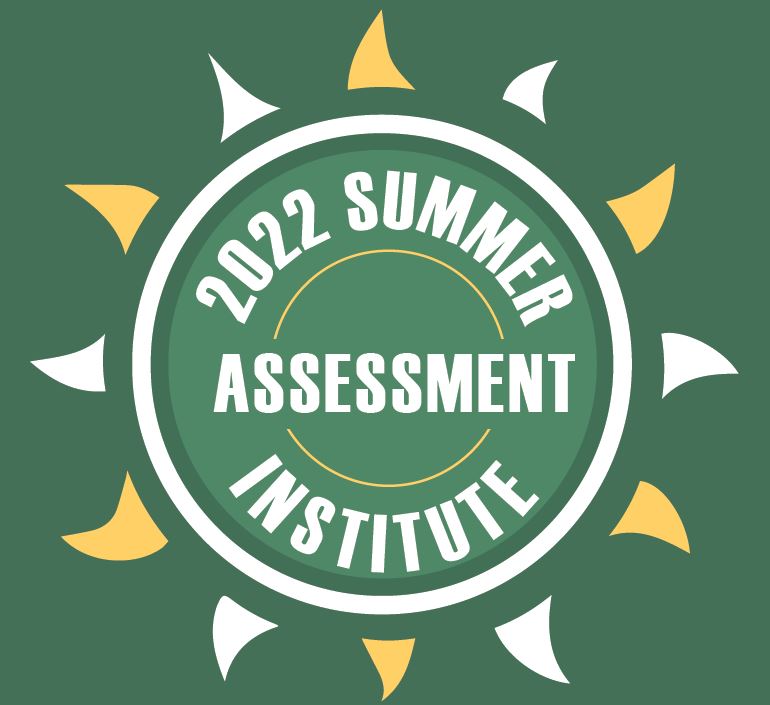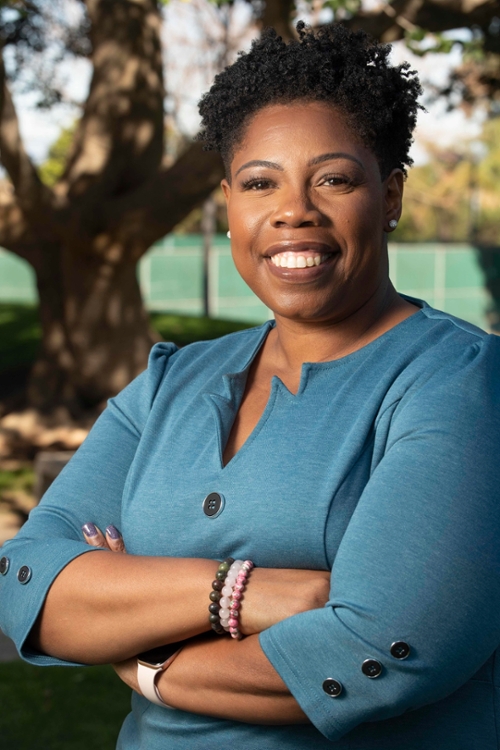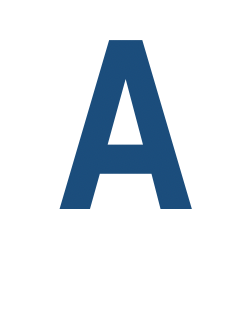Summer Assessment Institute 2022 (Virtual)
 The 2022 Summer Assessment Institute provides an opportunity to strengthen our knowledge of assessment. Kicking off with a welcome from Provost Jennifer Brown, subsequent concurrent sessions offer learning opportunities regarding assessment-related efforts conducted by faculty, and Academic Affairs and Student Affairs professionals. Separate sessions with “state of assessment” updates for the Division of Academic Affairs and the Division of Student Affairs will also be held.
The 2022 Summer Assessment Institute provides an opportunity to strengthen our knowledge of assessment. Kicking off with a welcome from Provost Jennifer Brown, subsequent concurrent sessions offer learning opportunities regarding assessment-related efforts conducted by faculty, and Academic Affairs and Student Affairs professionals. Separate sessions with “state of assessment” updates for the Division of Academic Affairs and the Division of Student Affairs will also be held.

Video Welcome
Provost Jennifer L. Brown
AVP Laura Massa
August 17 (Wednsday): 8:30am-9:00am

August 17 (Wednesday)
9:15am-10:00am
Concurrent Sessions A
Peter Kilduff, Associate Dean, Huntley College of Agriculture
Ron Heimler, PI, Fearless Classroom
As of Spring 2022, over 9,000 students from eight colleges and more than 200 faculty have participated in the Fearless Classroom project, a research-based intentional approach to form psychologically-safe classroom communities. This session shares assessment findings from Spring 2020 to Spring 2022 to determine the extent to which project goals have been achieved, including instructor-created learning environments that support success, equity and inclusion rates, and students’ sense of belonging over the course of the academic term. The future development of the Fearless Classroom is discussed.
Recording
Slides
Robert Nyenhuis, Associate Professor, Political Science, CLASS, and Faculty Fellow for University Assessment
In 2021-2022, CPP assessed oral communication using recorded video artifacts of student work using a standardized rubric vetted by faculty assessment committees. This session reviews the assessment methodology, and shares how well our students communicate orally as a whole, by criterion, and by demographic groups to better understand potential equity gaps. There will also be opportunity to discuss closing-the-loop strategies to strengthen future student performance.
Judy Juarez Crawford, Care Services, Student Affairs
Marisol Cardenas, Assessment, Data, Evaluation, Student Affairs
Alex Davis, Assessment, Data, Evaluation, Student Affairs
In Fall 2021, Cal Poly Pomona joined 27 higher education institutions across the country to help launch the first #RealCollege Institutional Capacity-Building Cohort (ICBC), a program by the Hope Center for College, Community, and Justice to assist colleges and universities in retaining students who need food and housing. This session highlights overall findings from the assessment survey conducted with CPP students. We will also discuss Cal Poly Pomona’s strategies to build a holistic student support model with food, housing, and financial stability at the core.

August 17 (Wednesday)
10:15am-11:00am
Concurrent Sessions B
Sara Werner Juárez, Assistant Professor, Education, CEIS
This session shares how Educational Specialist (ES) program faculty created a common rubric aligned to key assessments in each course of the teacher credential program. This multi-faceted rubric was aimed at ensuring equitable and effective evaluation of students’ work, their achievement of Course Learning Outcomes, and of California State Teacher Performance Expectations. The Key Assessment Rubric reflects the vision and values of the ES program across courses. It was developed in Summer 2021, and piloted in AY 2021-2022 across various courses in the curriculum. Faculty discussion of key assessment results revealed no needed revisions to the content of the rubric. However, recommendations to close the loop were related to logistics, such as supporting lecturers in embedding the rubric on Canvas assignments for efficient assessment.
Recording
Slides
Mónica Palomo, Professor, Civil Engineering, College of Engineering
The MS in Civil Engineering program recently underwent external review. In this session, we will discuss the use of student learning outcomes, the process followed for their assessment and the integration of assessment results into the program review process. The findings from the assessment were incorporated in the self-study report, including “watch areas” that will guide our monitoring efforts of student achievement of student learning outcomes.
Recording
Slides
Akira Kanatsu, Office of Institutional Research, Planning, and Analytics
The Office of Institutional Research, Planning, and Analytics (IRPA) supports data-informed decision making to help Cal Poly Pomona fulfill its commitment to student access and achievement. One way that our office supports student services colleagues is to make relevant data accessible through dashboards and data resources. In this presentation, we will introduce resources that are currently available to you on our dashboards and from the systemwide office. By accessing these resources, you will be able to find trends, success, and possible opportunities in the areas of your interest, inform future decisions, and achieve continuous improvements in support of student success and equity.

August 17 (Wednesday)
11:15am-12:45pm
The State of Assessment at CPP
Jocelyn Chong, Office of Assessment and Program Review
Keith Forward, Faculty Director of Undergraduate Studies & GE; Associate Professor, Chemical & Materials Engineering
This session presents various assessment updates within Academic Affairs. We will 1) discuss what replacing Institutional Learning Outcomes with Institutional Learning Goals means for academic departments; 2) seek faculty input concerning draft #2 of new GE student learning outcomes with AB928 considerations in mind; 3) share what we are assessing campus-wide this year; and 4) introduce new personnel in the Office of Assessment and Program Review.
RecordingSlides (PDF)
Robert Jackman, Assessment, Data, Evaluation, Student Affairs
Marisol Cardenas, Assessment, Data, Evaluation, Student Affairs
This session lays out the updated framework for Student Affairs data and assessment, and presents recent changes to the reconstituted Assessment, Data, and Evaluation (ADE) office. We will cover 1) ADE’s core competencies and how they can assist your team with data-driven decision-making and assessment; 2) The ADE logic model for mapping data and student outcomes within the Division; 3) A preview of new demographic and academic data sources that ADE can utilize to demonstrate the impact of Student Affairs; 4) an introduction to the newly expanded ADE team.

August 17 (Wednesday)
1:00pm-2:00pm
Virtual Walk-In
Marisol Cardenas, Assessment, Data and Evaluation, Student Affairs
Robert Jackman, Assessment, Data and Evaluation, Student Affairs
Jocelyn Chong, Office of Assessment and Program Review, Academic Programs
Despite its emergence in higher education in the late 1970s, assessment of student learning often goes unaddressed in our academic training. Over time, we gain working knowledge of its intent, processes, and best practices to strengthen programs and to ensure that our students graduate with key disciplinary knowledge, skills, and values vital to their future professional and academic success. However, there may be gaps in our own working knowledge of assessment from the ideal number of student learning outcomes to the differences between direct and indirect evidence, or from developing a strong rubric to analyzing and disaggregating data to identify nuanced gaps. This is a session to ask the questions you wonder about but were hesitant to pose.